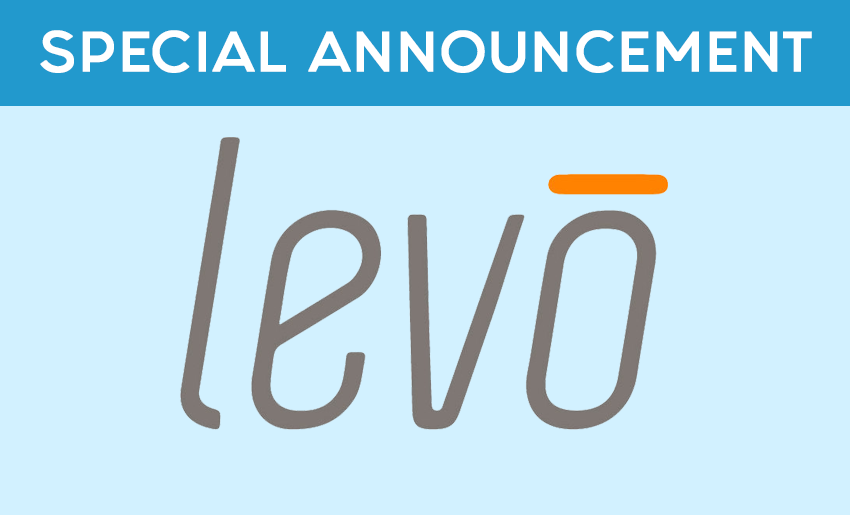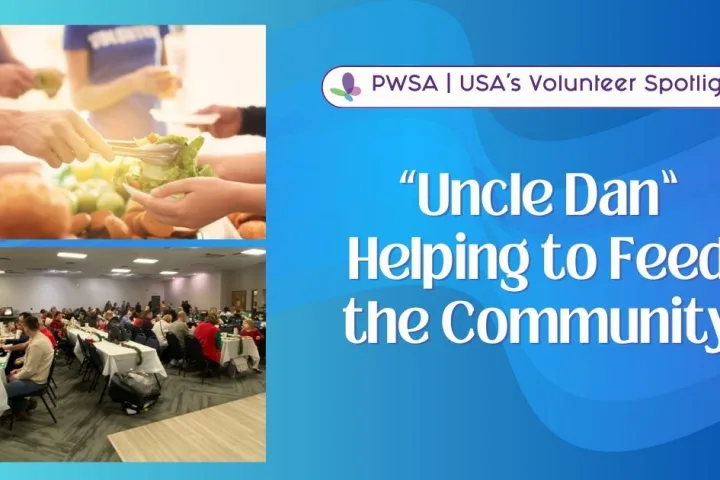Read Levo Therapeutic, Inc.’s Full Article HERE.
CHICAGO, IL, July 6, 2021 (Newswire.com) – Levo Therapeutics, Inc., a biotechnology company dedicated to using genetic insights to advance treatments for Prader-Willi syndrome (PWS) and related disorders, announced today that the U.S. Food and Drug Administration (FDA) has accepted its New Drug Application (NDA) for review and has granted the NDA Priority Review. FDA grants a 6-month Priority Review to applications for drugs that treat a serious condition and, if approved, would provide a significant improvement in safety or effectiveness. Levo’s application seeks marketing approval for LV-101 (intranasal carbetocin) as a treatment for hyperphagia and behavioral distress associated with PWS.
PWS is a rare, complex, neurodevelopmental disorder that occurs in approximately 1 in 16,000 birthsi and is characterized by a false state of starvation and associated hyperphagia (unrelenting hunger), to which a deficiency in oxytocin is believed to be contributoryii. LV-101 is a selective oxytocin-receptor agonist.
“We are genuinely appreciative that FDA has accepted our NDA for Priority Review,” said Sara Cotter, CEO of Levo Therapeutics. “We are looking forward to working with the Agency during the coming months. If approved, intranasal carbetocin will be the first specific treatment for the significant and disabling behavioral symptoms of PWS.”
“Currently there are no therapies approved by FDA to treat the most challenging aspects of PWS, namely the constant hunger and distress that substantially impact patients and families,” said Paige Rivard, MBA, CEO of the Prader-Willi Syndrome Association USA. “PWSA | USA has been advocating for patients and families since 1975, and we are incredibly excited that, for the first time, a treatment has made it this far in the development process.”
“This application is a substantial milestone for the PWS community, building on extensive scientific investigation of the neurobiological underpinnings of the syndrome,” said Theresa Strong, PhD, founding member and Director of Research Programs at the Foundation for Prader-Willi Research. “We look forward to continuing to help the PWS community share its perspective on the challenges that our loved ones face, our treatment preferences, and how LV-101 presents an opportunity to address these needs.”
——————————————————————————————————————
About LV-101 (Intranasal Carbetocin)
Carbetocin is an analog of the naturally-occurring neuroendocrine hormone oxytocin. Carbetocin was designed to have an improved receptor binding profile compared to oxytocin, with greater affinity for the oxytocin receptor and lower affinity for related vasopressin receptors. Through our licensor, Ferring Pharmaceuticals, carbetocin is approved in over 90 countries outside the United States for the prevention of uterine atony and excessive bleeding during cesarean section delivery, as well as newly approved in the EU following vaginal birth, with an estimated cumulative exposure of over 10 million patients. LV-101 is an investigational intranasal form of carbetocin, intended to be administered to patients with PWS three times each day before meals. LV-101 has been granted orphan drug and Fast Track designations from the U.S. Food and Drug Administration (FDA).
About Prader-Willi Syndrome (PWS)
Prader-Willi syndrome (PWS) is a complex, multisystem neurodevelopmental disorder that occurs in approximately 1 in 16,000 births.i The underlying cause of PWS is the lack of expression of paternally-inherited imprinted genes on chromosome 15q11-q13. These genetic anomalies lead to a distinctive phenotype that includes mild to moderate levels of intellectual disability, compulsivity, growth hormone deficiency, life-threatening hyperphagia, and anxiety.
About Levo Therapeutics, Inc.
Levo Therapeutics is a biotechnology company dedicated to using genetic insights to advance treatments for Prader-Willi syndrome and related disorders. To learn more about Levo, please visit www.levotx.com, or follow us on Twitter and LinkedIn.
For Further Information:
Levo Therapeutics, Inc.
Tel: 847-901-9260
i Burd L, Vesely B, Martsolf J, Kerbeshian J. Prevalence study of Prader-Willi syndrome in North Dakota. Am J Med Genet. 1990; 37:97-9.
ii Swaab, D. F., J. S. Purba, and M. A. Hofman. “Alterations in the hypothalamic paraventricular nucleus and its oxytocin neurons (putative satiety cells) in Prader-Willi syndrome: a study of five cases.” The Journal of Clinical Endocrinology & Metabolism 80.2 (1995): 573-579.





 Perry A. Zirkel has written more than 1,500 publications on various aspects of school law, with an emphasis on legal issues in special education. He writes a regular column for NAESP’s Principal magazine and NASP’s Communiqué newsletter, and he did so previously for Phi Delta Kappan and Teaching Exceptional Children.
Perry A. Zirkel has written more than 1,500 publications on various aspects of school law, with an emphasis on legal issues in special education. He writes a regular column for NAESP’s Principal magazine and NASP’s Communiqué newsletter, and he did so previously for Phi Delta Kappan and Teaching Exceptional Children. Jennifer Bolander has been serving as a Special Education Specialist for PWSA (USA) since October of 2015. She is a graduate of John Carroll University and lives in Ohio with her husband Brad and daughters Kate (17), and Sophia (13) who was born with PWS.
Jennifer Bolander has been serving as a Special Education Specialist for PWSA (USA) since October of 2015. She is a graduate of John Carroll University and lives in Ohio with her husband Brad and daughters Kate (17), and Sophia (13) who was born with PWS. Dr. Amy McTighe is the PWS Program Manager and Inpatient Teacher at the Center for Prader-Willi Syndrome at the Children’s Institute of Pittsburgh. She graduated from Duquesne University receiving her Bachelor’s and Master’s degree in Education with a focus on elementary education, special education, and language arts.
Dr. Amy McTighe is the PWS Program Manager and Inpatient Teacher at the Center for Prader-Willi Syndrome at the Children’s Institute of Pittsburgh. She graduated from Duquesne University receiving her Bachelor’s and Master’s degree in Education with a focus on elementary education, special education, and language arts. Evan has worked with the Prader-Willi Syndrome Association (USA) since 2007 primarily as a Crisis Intervention and Family Support Counselor. Evans works with parents and schools to foster strong collaborative relationships and appropriate educational environments for students with PWS.
Evan has worked with the Prader-Willi Syndrome Association (USA) since 2007 primarily as a Crisis Intervention and Family Support Counselor. Evans works with parents and schools to foster strong collaborative relationships and appropriate educational environments for students with PWS. Staci Zimmerman works for Prader-Willi Syndrome Association of Colorado as an Individualized Education Program (IEP) consultant. Staci collaborates with the PWS multi-disciplinary clinic at the Children’s Hospital in Denver supporting families and school districts around the United States with their child’s Individual Educational Plan.
Staci Zimmerman works for Prader-Willi Syndrome Association of Colorado as an Individualized Education Program (IEP) consultant. Staci collaborates with the PWS multi-disciplinary clinic at the Children’s Hospital in Denver supporting families and school districts around the United States with their child’s Individual Educational Plan. Founded in 2001, SDLC is a non-profit legal services organization dedicated to protecting and advancing the legal rights of people with disabilities throughout the South. It partners with the Southern Poverty Law Center, Protection and Advocacy (P&A) programs, Legal Services Corporations (LSC) and disability organizations on major, systemic disability rights issues involving the Individuals with Disabilities Education Act (IDEA), Americans with Disabilities Act (ADA), and the federal Medicaid Act. Recently in November 2014, Jim retired.
Founded in 2001, SDLC is a non-profit legal services organization dedicated to protecting and advancing the legal rights of people with disabilities throughout the South. It partners with the Southern Poverty Law Center, Protection and Advocacy (P&A) programs, Legal Services Corporations (LSC) and disability organizations on major, systemic disability rights issues involving the Individuals with Disabilities Education Act (IDEA), Americans with Disabilities Act (ADA), and the federal Medicaid Act. Recently in November 2014, Jim retired.